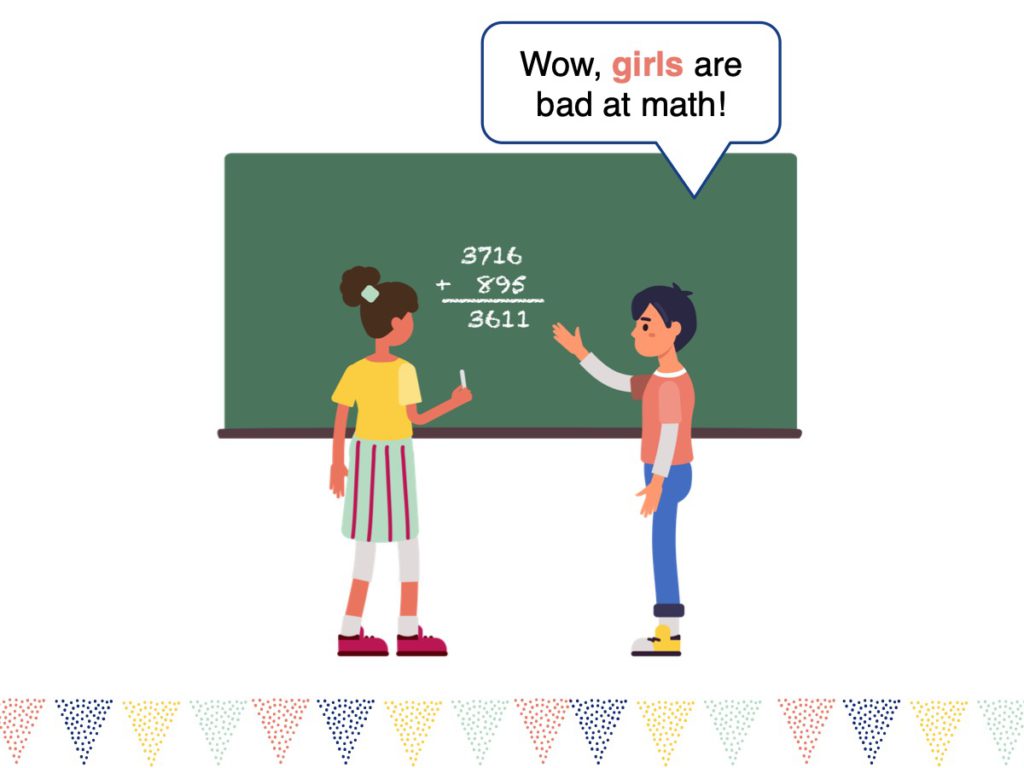
Children learn both positive and negative things from their environment. Unfortunately, stereotypes are no exception. Stereotypes about who does math are everywhere and they are hard to escape. Do an image search online for “mathematician”. What do you notice? The majority of the images are of white men. Children don’t often see images of female engineers, programmers, or coders. These careers all require heavy math use. In this module we will focus on the gender stereotype that “math is for boys.”
Society often treats men and women differently when it comes to math too. If a woman makes a mistake related to math, people are likely to attribute the error to her gender, thinking, “Women are bad at math.” But if a man makes a mistake related to math, the error is often attributed to him personally. All men are not lumped into the same “bad at math” category. Sometimes these messages are communicated explicitly, but other times, the messages are subtle. For example, if girls are always directed to dad for help with math homework, that could send the implicit message that men are better at math.
How and when do these stereotypes form? Let’s look at some research that explores the beginning of math-gender stereotypes.
-
- Math-gender stereotype
- a belief that math is for a particular gender, such as girls or boys
- Math self-concept
- the association between the self and math
- Self-concept
- refers to how someone thinks about their self and their attributes